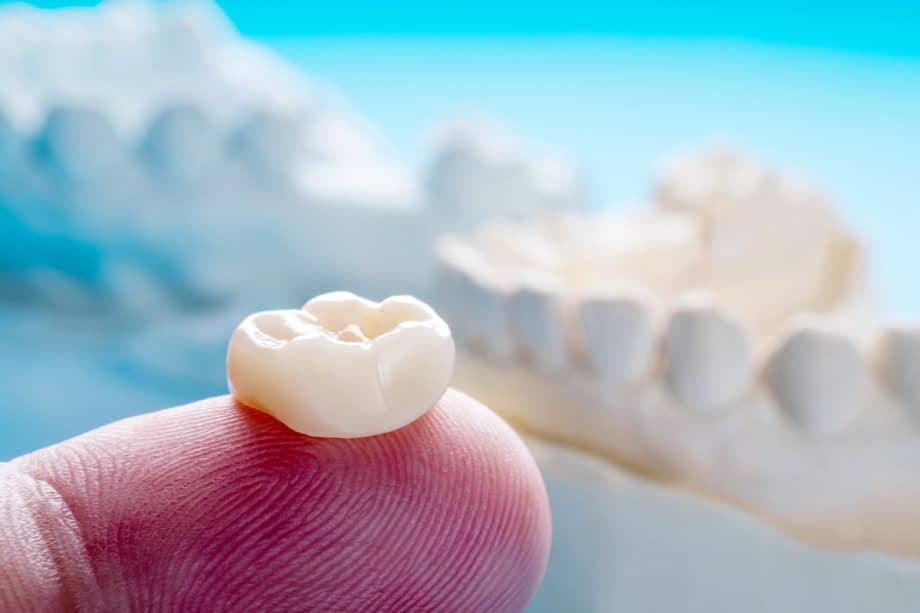Dental crowns, including 1-day crowns, are an important part of restorative dental care. Crowns are used for a variety of reasons, such as cosmetic issues, cracked or worn teeth, and restoration after receiving a root canal. They can be attached to dental implants or used as support for dental bridges or as a replacement for a missing tooth or teeth.
Types of Crowns
There are several different types of material that can be used for crowns, and your dentist will consider what’s best for you. The choice may depend on the location of the tooth, just how much of your natural tooth remains, and how visible the crown will be each time you smile. Strength and durability is also considered.
With all crowns fabricated in our office, once a detailed analysis is performed (and in consultation with with lab technicians and specialists if we are fabricating a restoration outside of our office), we decide which of our esthetic options will work best for your particular bite and appearance- carefully balancing beauty and material strength. All of our restorations are metal free and biologically compatible.
Traditional Crowns Vs Single Day Crowns
While traditional crowns are fabricated outside the office, so that patients will need to wear a temporary crown while permanent restorations are created, at our office, we can incorporate digital scans rather than physical impressions to sculpt your new crown while you wait in a single visit, often in 90 minutes.
You will leave the same day with your permanent crown in place.
If needed, we’ll build up the tooth with filling material to accommodate the crown.
Single day crowns are created with the same high-quality porcelain as traditional porcelain crowns. They look and feel natural, and today’s ceramics and porcelain are both beautiful, durable and long-lasting material. In many ways they are superior to the gold restorations that were the Rolls Royce of dentistry in the past. These crowns provide all the benefits of traditional crowns, but all in one day, without the need for a temporary crown, or waiting weeks to receive crowns from a dental lab.
When Is It Time to Replace a Crown?
While wear is different for everyone, crowns most likely need replacement if they’re chipped or cracked. And, while a crown itself cannot become decayed, you can still get cavities that form beneath it.
Crown age by itself isn’t a consideration when it comes to the time you may need to replace a crown. A well-cared-for crown can even last a lifetime.
When cared for properly with twice daily brushing and flossing and routine scheduled dental exams and cleanings, crowns typically last between 15 and 25 years. The length of time a crown lasts depends both on your dental health overall, daily wear, and hygiene, as well as the type of crown material that is used.
Simply remember to brush and floss twice a day, schedule your routine check-ups and cleanings twice a year, and avoid high sugar foods as much as possible.
Ready to Learn More About Dental Crowns?
If you’re ready to learn more about dental crowns, we’re here to help. Our skilled dental professionals are ready to discuss single-day crowns as well as other options, for both restorative and cosmetic dentistry.
Just reach out to us today. We’ll make sure your smile looks great!

